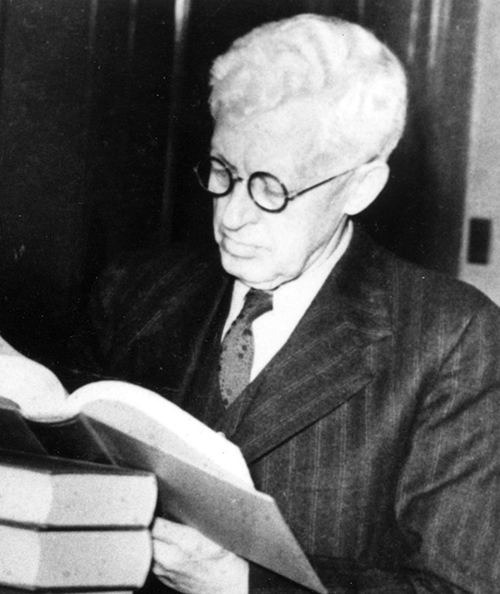
FOREMAN, GRANT (1869–1953).
Born on June 3, 1869, in Detroit, Pike County, Illinois, to Abner A. and Elizabeth Hayden Foreman, Grant Foreman became one of the foremost historians of Oklahoma. Trained as an attorney at the University of Michigan, he first practiced in Chicago. He came to the Indian Territory in 1899 as a field worker for the Dawes Commission. Through this experience and subsequent legal practice he developed a thorough knowledge of the Three Forks area and the Indian tribes of eastern Oklahoma. After four years with the commission he went into private practice with John R. Thomas in Muskogee. Instrumental in founding the Muskogee Historical Society in 1920, Foreman also served on the board of the town's Carnegie Library and on the Muskogee City Council. As he had outside income, he gave up his law practice in 1920 and devoted his attention entirely to historical research and writing. In February 1924 he was elected to the Oklahoma Historical Society Board of Directors. For the next quarter century he defined the role of leadership. In concert with Robert L. Williams, he lobbied for the new Historical Building, convinced the board to purchase the Fort Gibson barracks, and forcefully advocated the marking and preservation of historic sites by the historical society.
A prolific writer, Foreman wrote or edited nineteen books, fifty-two articles, and, in addition, ninety-one feature articles in newspapers around Oklahoma. Five of his books appeared in the University of Oklahoma Press's Civilization of the American Indian Series, which he helped establish with press director Joseph Brandt. Three memorable works have been standards in the field: Indian Removal (1932), Advancing the Frontier (1933), and The Five Civilized Tribes (1934). Another of his great legacies was as a collector of documentary resources. He engineered the acquisition of the three-million-document collection that became the Oklahoma Historical Society's Indian Archives. As part of the Work Progress Administration's Oklahoma branch of the Federal Writers' Project, he directed the work of the Historical Records Survey that compiled the 116-volume oral history comprising the Indian-Pioneer Papers, a major source for the history of early-twentieth-century Oklahoma.
Foreman's honors in life included an honorary doctorate of literature from the University of Tulsa in 1932 and election as a Fellow of the American Geographical Society in 1942 for his editorial work in Marcy and the Gold Seekers (1939, the journals of Randolph B. Marcy), in Adventure on Red River, Report . . . by Captain Randolph B. Marcy (1937), and in A Pathfinder in the Southwest (1941, the Amiel W. Whipple expedition report).
Foreman married Carolyn Thomas, his assistant and the daughter of John R. Thomas, in July 1905. She became a respected historian in her own right. One of Oklahoma's premier chroniclers, Grant Foreman died on April 21, 1953, in Muskogee. He was inducted into the Oklahoma Hall of Fame in 1934 and the Oklahoma Historians Hall of Fame posthumously in 1993.






